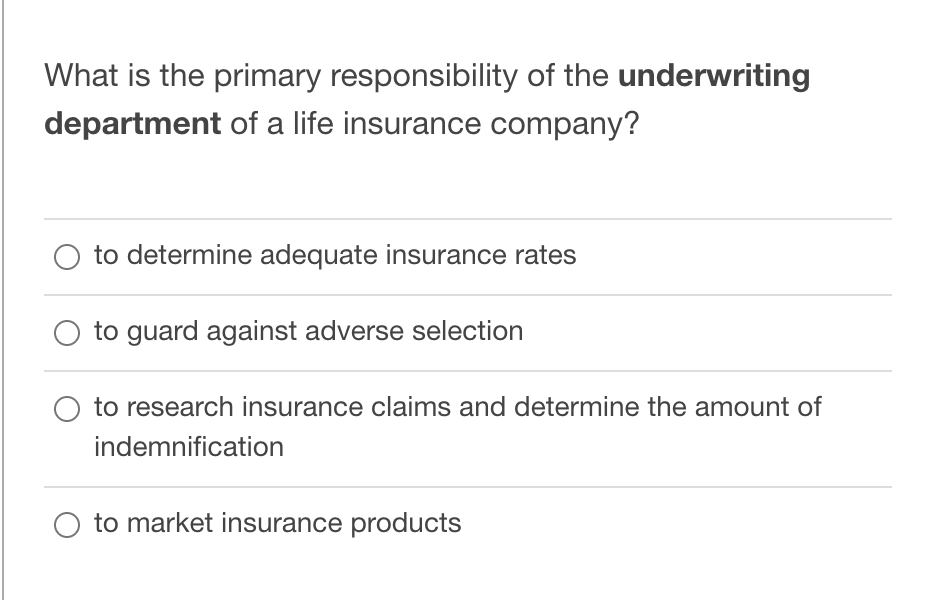The Applicant’s Consideration in an Insurance Contract

Consideration refers to the exchange of something of value between parties in a contract. In an insurance contract, the applicant’s consideration is what they provide to the insurance company in exchange for the coverage and protection offered by the policy.
The applicant’s consideration plays a crucial role in the formation of the insurance contract. Without valid consideration, the contract is not legally enforceable. The consideration must be of value to the insurance company and can take various forms, such as:
Types of Consideration
- Payment of Premiums: The most common form of consideration is the payment of premiums by the applicant. Premiums are the periodic payments made to the insurance company to maintain the coverage provided by the policy.
- Assumption of Risk: The applicant may also provide consideration by assuming a certain level of risk. For example, in a health insurance policy, the applicant’s medical history and health status can influence the risk assessment and, subsequently, the premiums charged.
- Disclosure of Information: In some cases, the applicant’s disclosure of accurate and complete information about themselves and the subject matter of the insurance can be considered valuable consideration.
Legal Obligations Arising from the Applicant’s Consideration
Upon providing consideration, the applicant assumes certain legal obligations. These obligations are essential for maintaining the validity and enforceability of the insurance contract.
The most fundamental obligation is the duty of utmost good faith. This duty requires the applicant to disclose all material facts that could influence the insurer’s decision to issue the policy or the terms of the coverage. Failure to disclose material facts can result in the policy being void or voidable, meaning the insurer may not be obligated to pay benefits under the policy.
Materiality
Materiality is a key concept in determining the consequences of failing to disclose information. Material facts are those that would have a significant impact on the insurer’s decision-making process. The materiality of a fact is assessed based on its relevance to the risk being insured and the likelihood that it would affect the insurer’s assessment of the risk.
Specific Provisions Relating to the Applicant’s Consideration
Insurance contracts often include specific provisions that address the applicant’s consideration. These provisions may vary depending on the type of insurance contract, but they generally serve to define the applicant’s obligations and the insurer’s rights in relation to the consideration.
One common provision is a requirement that the applicant provide accurate and complete information on the application. This provision is designed to protect the insurer from the risk of adverse selection, which occurs when applicants with higher risks are more likely to purchase insurance than those with lower risks. By requiring applicants to provide accurate information, insurers can better assess the risk of insuring them and set appropriate premiums.
Another common provision is a requirement that the applicant pay the premium in a timely manner. This provision is designed to ensure that the insurer has the funds necessary to pay claims. If the applicant fails to pay the premium, the insurer may have the right to cancel the policy.
In addition to these general provisions, insurance contracts may also include specific provisions that address the applicant’s consideration in more detail. For example, a life insurance contract may include a provision that requires the applicant to undergo a medical examination. This provision is designed to help the insurer assess the applicant’s health and determine the appropriate premium.
The purpose of these specific provisions is to protect the insurer from the risk of adverse selection and to ensure that the insurer has the funds necessary to pay claims. These provisions also help to define the applicant’s obligations and the insurer’s rights in relation to the consideration.
Examples of Court Interpretations
The courts have interpreted specific provisions relating to the applicant’s consideration in a number of cases. In one case, an applicant for life insurance failed to disclose a history of heart disease on the application. The insurer later denied the applicant’s claim for benefits, arguing that the applicant had breached the duty to provide accurate information. The court agreed with the insurer, holding that the applicant’s failure to disclose his medical history was a material misrepresentation that voided the policy.
In another case, an applicant for auto insurance failed to pay the premium in a timely manner. The insurer canceled the policy, and the applicant was later involved in an accident. The court held that the insurer was not liable for the applicant’s damages because the applicant had breached the duty to pay the premium.
These cases illustrate the importance of specific provisions relating to the applicant’s consideration. These provisions help to protect the insurer from the risk of adverse selection and to ensure that the insurer has the funds necessary to pay claims. They also help to define the applicant’s obligations and the insurer’s rights in relation to the consideration.
Impact of Misrepresentation or Fraud on the Applicant’s Consideration
Misrepresentation or fraud on the part of the applicant can have significant consequences for the applicant’s consideration in an insurance contract. If the insurer can prove that the applicant knowingly or recklessly made false or misleading statements in their application, the insurer may be entitled to rescind the contract, voiding coverage and returning any premiums paid.
Legal Remedies Available to Insurers
In cases of misrepresentation or fraud, insurers have several legal remedies available to them, including:
- Rescission: The insurer can cancel the contract and return any premiums paid, effectively voiding coverage.
- Reformation: The insurer can modify the contract to reflect the true facts, such as adjusting the premiums or coverage limits.
- Denial of coverage: The insurer can refuse to provide coverage for the specific claim or loss that was related to the misrepresentation or fraud.
Examples of Case Law
Case law provides numerous examples of the consequences of misrepresentation or fraud on the applicant’s consideration. In one case, an applicant failed to disclose a history of heart disease on their application for life insurance. After the applicant died, the insurer discovered the misrepresentation and successfully rescinded the contract, denying the death benefit to the beneficiary.
In another case, an applicant for homeowners insurance falsely stated that their home was not located in a flood zone. When the home was damaged by flooding, the insurer denied coverage based on the misrepresentation, leaving the applicant financially responsible for the repairs.
Recent Trends and Developments in the Law of Consideration in Insurance Contracts
In recent years, the law of consideration in insurance contracts has undergone significant changes. These developments have had a major impact on the applicant’s consideration and have given rise to new legal obligations.
One of the most important trends has been the increasing recognition of the importance of good faith in insurance contracts. This has led to a number of new legal obligations on the part of the applicant, including the duty to disclose all material information to the insurer and the duty to act in good faith throughout the life of the contract.
Another important trend has been the development of new doctrines to protect the rights of applicants. These doctrines include the doctrine of uberrimae fidei, which requires the applicant to disclose all material information to the insurer, and the doctrine of promissory estoppel, which prevents an insurer from denying coverage based on a promise that was made to the applicant.
These trends are likely to continue in the future, and they will have a significant impact on the law of consideration in insurance contracts. Applicants should be aware of these developments and should take steps to comply with their legal obligations.
Impact of Recent Developments on the Applicant’s Consideration
The recent developments in the law of consideration in insurance contracts have had a significant impact on the applicant’s consideration. These developments have increased the applicant’s obligations and have given rise to new legal risks.
One of the most important impacts of these developments has been the increased importance of good faith. Applicants are now required to disclose all material information to the insurer and to act in good faith throughout the life of the contract. This means that applicants must be honest and forthright with the insurer and must not take any actions that could mislead the insurer.
Another important impact of these developments has been the development of new doctrines to protect the rights of applicants. These doctrines include the doctrine of uberrimae fidei and the doctrine of promissory estoppel. These doctrines provide applicants with important legal protections and can help to ensure that they receive the coverage that they are entitled to.
Potential Future Changes in the Law
The law of consideration in insurance contracts is constantly evolving, and it is likely that there will be further changes in the future. These changes could have a significant impact on the applicant’s consideration.
One potential change is the development of new doctrines to protect the rights of applicants. These doctrines could include a doctrine that requires insurers to provide applicants with a clear and concise explanation of the terms of the contract, or a doctrine that prevents insurers from denying coverage based on a technicality.
Another potential change is the increased use of technology in insurance contracts. This could lead to the development of new ways to collect and disclose information, and it could also lead to new ways to enforce the terms of the contract.
Applicants should be aware of these potential changes and should be prepared to adapt to them. By staying informed about the latest developments in the law, applicants can protect their rights and ensure that they receive the coverage that they are entitled to.




